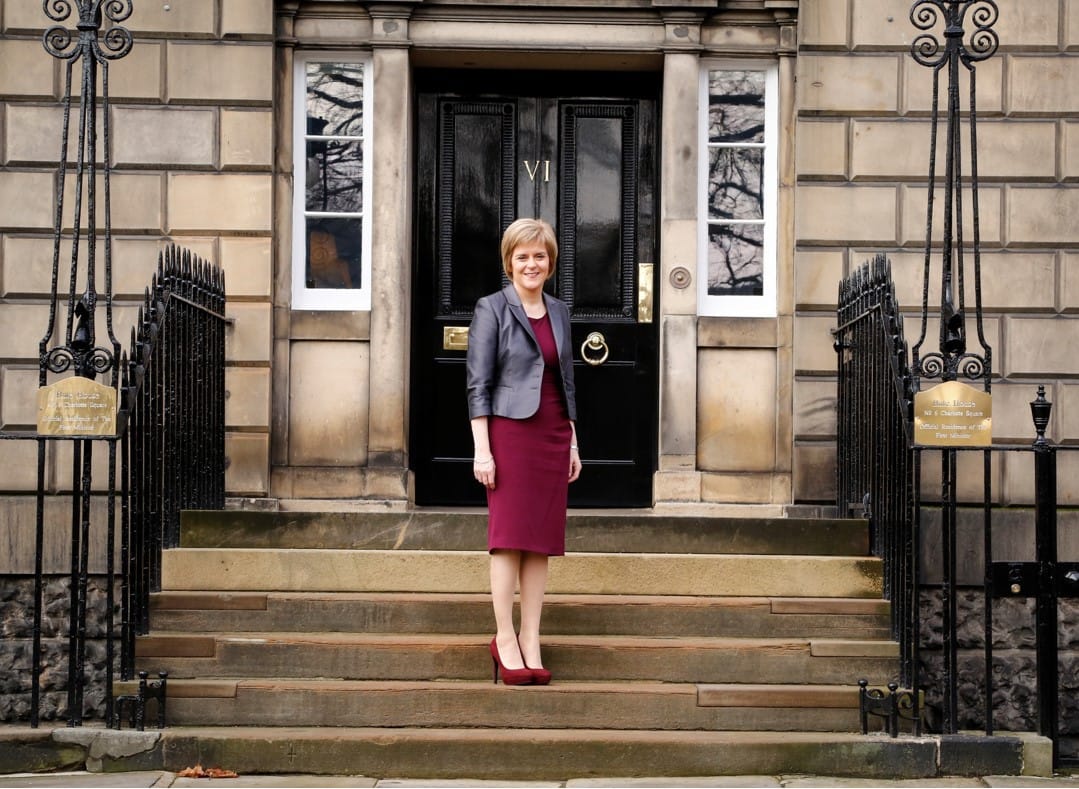Nicola Sturgeon Resigns; SNP Leadership Contest Begins

By Archie Thomas, BA Politics and International Relations
On February 15th, Nicola Sturgeon announced her resignation from the leadership of the SNP (Scottish National Party) and as First Minister of Scotland. She cited the personal toll of the job as the main reason for the decision. The announcement brings further uncertainty for the nation of Scotland and the future of the United Kingdom. By the 27th of March, Scotland’s largest and the UK’s third-largest party will have a new leader.
In a surprise press conference in Edinburgh, Sturgeon gave her resignation speech outlining the reasons for stepping down. The first female and longest-standing First Minister of Scotland said that ‘part of serving well would be to know, almost instinctively, when the time is right to make way for someone else and when that time came to have the courage to do so … In my head and my heart, I know that time is now.’
Sturgeon was keen to dismiss any claim that the short-term pressures her government is currently facing were a potential cause for her resignation. She admitted there are difficult issues confronting the government but asked, ‘when is that ever not the case?’
Lately, The Scottish government has faced two major constitutional battles. Last November, the UK Supreme Court ruled against the Scottish parliament holding a new independence referendum. The court unanimously ruled that only Westminster holds the power to legislate for such a vote. More recently, Downing Street had blocked the Gender Recognition Bill from being sent to the King for royal assent, despite the bill passing 86 votes to 39 in Holyrood. This is the first time a bill has been blocked in 25 years of devolution.
“The most important issue for the SNP is independence, but there is no consensus on how to achieve it.”
As a result of these battles, new divisions have emerged within the SNP. The most important issue for the SNP is independence, but there is no consensus on how to achieve it. In response to the Supreme Court ruling, Nicola Sturgeon’s government had suggested that the next Holyrood election could be seen as a de-facto referendum, but this would not be until 2026. Some within the party want an early election to be called and for it to act as a referendum. While others are opposed to using an election as a de-facto referendum entirely. Even within Sturgeon’s government, there were divisions, with minister Ivan Mckee proposing that ‘yes’ must be on the ballot for it to be a de facto referendum. Raising the question of a name change for the SNP or a new party entirely.
There are three candidates in the running to be the next leader of the SNP and move into Bute House. Humza Yousaf is the current Cabinet Secretary for Health and Social Care and, at the time of writing, is narrowly ahead in the polls. Yousaf is seen by many as the ‘continuity candidate’ and is the only one of the three to back gender recognition reform. Yousaf, though, has courted controversy over him missing a vote on equal marriage, which former First Minister Alex Salmond claims were due to ‘religious pressure’. He also takes the view on independence that as long as the SNP governs well, the mechanism for independence will work itself out.
Kate Forbes currently serves as the Cabinet Secretary for Finance and the Economy and was the early favourite for the leadership. She has positioned herself stridently against improved Transgender rights and on the issue of independence, which is pitched to be most similar to Nicola Sturgeon. Forbes lost the backing of a number of her SNP colleagues after a series of interviews in the first days of her campaign. In these interviews, she expressed her personal opposition to same-sex marriage, abortion, and sex outside of marriage, though she stressed that she would not roll back any existing rights.
Ash Regan is the only candidate who is not currently a minister; she resigned in 2022 in protest over the Gender Recognition Reform Bill. Regan is the most bullish on the issue of securing independence. She proposes taking either a Holyrood election or a Westminster general election as a de-facto referendum on independence.
Voting in the SNP Leadership election will close on March 27th, with the new leader declared that day.
Photo Caption: Nicola Sturgeon stands outside of Bute House, the official residence of the First Minister (Credit: Scottish Government, licensed under CC BY-NC 2.0).




